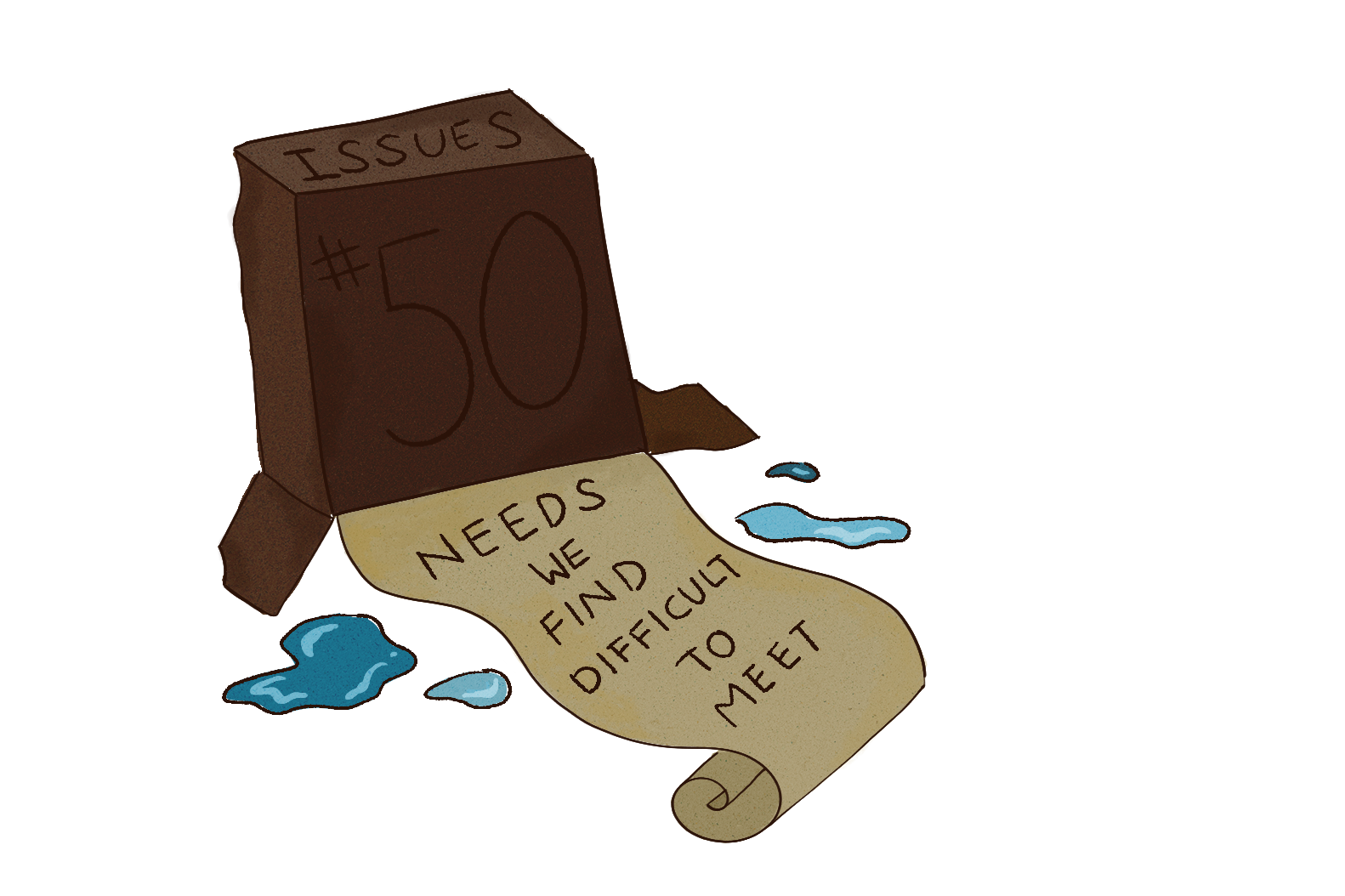Have you ever found yourself in a position where you had to deal with someone difficult?
In most cases, our instinct would be to walk away from people that we can’t handle.
But what if this difficult person is someone that God has called you to journey with?
Let me first clarify that I don’t mean difficult in a derogatory way. Rather, I’m referring to those in our lives with needs that we find difficult to meet.
In many circumstances, we do have love for these friends or family members. Yet we find ourselves challenged because they aren’t the easiest to be around.

I spoke to Sarah Khong, Youth Pastor at Bethesda Bedok Tampines Church, who was once a school counsellor.
Having also been a case manager at the Institute of Mental Health, the 29-year-old shares with Thir.st the nuggets of wisdom she has gained.
We hope that these tips will equip you to minister to people you’re struggling to walk with!
Let’s not be quick to judge
First, it’s important to acknowledge that it’s highly unlikely that they’re being difficult on purpose by overloading us with their struggles.
Neither is it always possible for them to solve their issues overnight.
From our perspective, it’s easy to prescribe solutions and rack our brains over why they can’t simply “snap out of it”.
But that could be a dangerous mindset to have when they might truly be struggling mentally.
In such situations, it’s crucial to differentiate if they’re going through a bad season in their lives or facing something more long term that requires medical attention.
Pastor Sarah suggests taking time to observe their behaviours to make that distinction.
“If you see a repeated pattern (in their behaviour), then sometimes it might be quite useful to go and get checked.
“But if it’s a one-time thing, sometimes it’s just better to not overreact to it,” she says.
Pastor Sarah also points out that labels can be a double-edged sword.
We should be careful about being too quick to label what they are struggling with.
Placing a name tag on their behaviour might help them to understand and process what they’re going through.
However, it can also enable them to use their diagnosis as an excuse and thus be resistant to improvement and change.
As such, we should be careful about being too quick to label what they’re struggling with.
Ultimately, seeking professional help is a process that they have to first want to seek out themselves.
Our role is to simply be a companion, and gently flag out the possibility of getting a diagnosis if we think they need additional assistance.
Regardless, you can still help
Whether someone is clinically diagnosed or temporarily in a bad place, there are still ways we can journey with them.
Pastor Sarah shares 4 handles we can use:
1. Hold space
This usually looks like being present and lending a listening ear.
Being the one struggling, the person would have likely thought about their problems more than we have. In fact, they might even know the solutions to whatever they are going through.
Hence, what they need from us is not so much advice, or for us to tell them what to do. At times, our company and willingness to listen is sufficient.

“You also need to recognise your own limitation. You’re not a 24/7 helpline… so don’t ever put that pressure on yourself,” says Pastor Sarah.
Our role is to simply create a safe environment where they can receive emotional support.
When you find yourself unsure of what to say, it’s okay to ask: “How do you think I can help you in this?”
By doing this, we can learn more about what they need. Then, we can meet that need if it’s within our capacity.
2. Avoid making promises you can’t keep
No one likes to be at the receiving end of broken promises.
But this is especially true for those who are already emotionally vulnerable. Chances are, they will take us at our word when we make definitive statements about how we can help them.
“Call me anytime” is one common promise we make.
Instead of rushing to meet their needs through promises that we might later default on, it’s okay to pause and ask God for wisdom.
Pastor Sarah explains that while we might have good intentions, we’re actually “setting an unrealistic bar for ourselves”.
In the moment, our desire to be helpful leads us to say things that we might not literally mean. We must be careful not to exaggerate or over-promise in the process of reassuring them.
Instead of rushing to meet their needs through promises that we might later default on, it’s okay to pause and ask God for wisdom.
We serve a great God that created these friends or family members whom we’re journeying with. Ask Him how you can minister to them.
3. Don’t jump to conclusions
It’s important to hold back our biases when we’re listening to them share about their problems.
Due to our own lived experiences and past conversations, we might be tempted to assume certain things about their journeys, which may not be true.
Pastor Sarah urges us to be aware of the judgements we hold, and to practise asking “who, what, when, where and why” questions to get the full context of the situation.
Another area where we tend to jump to conclusions would be the type of advice they might require.
Pastor Sarah says that “because of the mental state our friends are in, they might not be ready to hear some of (the advice we are giving them)”.
We might think we are saying something encouraging, but they might interpret it as us belittling their problems.
Or we could be trying to put things in a more positive light, yet they could misunderstand it as us trying to normalise their issues.
Since we don’t know what they could potentially be triggered by, Pastor Sarah encourages us to exercise discernment to “sense the atmosphere” and to see where this person is at before thinking of how to help them move forward.
4. Provide alternative perspectives
Depending on which part of the journey they’re at, there’s a place for us to “challenge some of these thoughts they have by asking questions”, adds Pastor Sarah.
For instance, our friends might share that they feel that no one cares about them.
Asking questions can help them further process this belief, nudging them to consider if such thoughts reflect the truth.
 Questions we can ask include:
Questions we can ask include:
- What do you mean by that?
- Can you share more?
- How do you think you would want to receive care from the people around you?
Instead of trying to debunk their thoughts by insisting their parents or friends care for them, try to get them to reflect on their thoughts themselves.
Why is this important? Pastor Sarah notes that when we are emotional, the cognitive side of our brain is usually not active.
By encouraging our friends to think more objectively about their problems, they would be better able to shift from emotion to logic.
This would also help them to calm down and view their issues from a different perspective.
Boundaries aren’t bad things
But what if you’ve done all the above… and still feel like you’re at the end of your rope?
Drawing lines are necessary to safeguard your own mental and emotional health, and does not equate to shutting our friends or family members out.
Here, Pastor Sarah gives a helpful analogy: plane safety procedures.
“You know how every time in a plane, you must put the oxygen mask on first before helping others? Mentally, emotionally, physically — that is the same principle that applies when it comes to helping people,” she says.
If we’re not in a good space, it’s vital that we allow ourselves to recharge by engaging in hobbies, talking to friends or asking for advice.
We would not be effective support systems for others if we’re crumbling ourselves.
Journeying with others in a team is helpful because this gives everyone space to rest and recover.
And in the event that we’re unable to find it within ourselves to continue journeying with someone else, it’s okay to direct them to other resources.
These could be people with more experience or expertise in the area of struggle.
Pastor Sarah emphasises the importance of explaining to our friends or family members our heart behind the decision to introduce them to someone else.
“You’re not trying to ‘tai chi’ away this person, but it’s (knowing that someone else) can actually help… you’re giving them an option and asking them if they would like to try it,” she says.
In any case, journeying with others in a team is helpful because this gives everyone space to rest and recover.
We also have to be careful not to let the person we’re helping become overly reliant on us.
“We’re vessels. And God is the one who is causing the change in between,” says Pastor Sarah.
“If we’re faithful to do what He has called us to do in terms of journeying with this person, then I think there’s no guilt in letting go.”
Build welcoming communities
Finally, some of us might not be directly journeying with anyone difficult. However, we might be in a community where there are people like that.
Pastor Sarah calls us to look at them without the lens of bias. Continue to have casual conversations with them, and treat them as we would any other person.
“If you’re not comfortable, it will show,” she says.
Should we have the capacity to begin a deeper journey with them, we ought to do so.
But if we’re aware that we have no capacity in our current season, simply being inclusive and welcoming is a good way to help them feel supported as well.
As we journey with the difficult people in our lives, let’s remember that we don’t have to do it with our own strength.
In 1 John 4:19-21, God calls us to love His people as we love Him. But verse 19 is important to remember:
We love because He first loved us.
May God’s love fill our tanks, and sustain and strengthen us to love others well!
- Is there someone in your life that you’re struggling to journey with?
- Which handles from this article can you apply in your journey with him/her?
- What boundaries might you need to set in your relationships with others?









